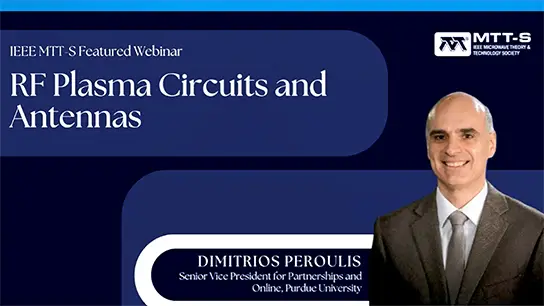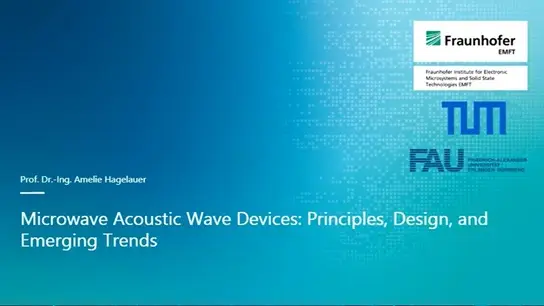Ultra-Low-Power Integrated Circuits and Physiochemical Sensors for Next Generation "Unawearables" Slides
Patrick Mercier
-
Members: FreeSSCS
IEEE Members: $8.00
Non-members: $12.00Pages/Slides: 55
30 Oct 2019
Abstract- Wearable devices hold considerable promise to diagnose, monitor, and treat various medical conditions and/or track the real-time status of athletes. However, most current generation wearable devices only monitor a limited number of physical and electrophysiological parameters that are, in many cases, only peripherally related to many health conditions or fitness enterprises. Furthermore, many such wearable devices are large, bulky, and rigid, thereby precluding seamless integration into daily life. Addressing these issues requires: 1) development of new sensor technologies that provide more actionable data in thin, flexible form factors; 2) engineering of supporting electronic infrastructure to condition, digitize, and wirelessly communicate data in an extremely energy efficient manner; and 3) new data analytics to process and understand newly generated data streams. This presentation will discuss emerging sensor technologies that can non-invasively monitor physiochemistry (e.g., glucose, blood alcohol concentration, and lactate) in thin, flexible, and energy-efficiency wearable devices, alongside a brief look at what kind of analytics are necessary to parse and understand this data. We will also cover integrated circuit building blocks and architectures that make acquisition and telemetry of sensed information so energy-efficient that that they can be easily powered from new local energy sources (e.g., wearable glucose biofuel cells). Such net-zero-power operation will ultimately enable devices that are completely autonomous and invisible to the user, to the point where users are virtually unaware of their wearable devices after placement, in other words, they are "unawearable" devices.
Biography- Patrick Mercier is an Associate Professor of Electrical and Computer Engineering and co-founder/co-director of the Center for Wearable Sensors at UC San Diego. He received his B.Sc. degree from the University of Alberta, Canada, in 2006, and the S.M. and Ph.D. degrees from MIT in 2008 and 2012, respectively. Prof. Mercier has received numerous awards, including the NSF CAREER Award in 2018, the Biocom Catalyst Award in 2017, the UCSD Academic Senate Distinguished Teaching Award in 2016, the DARPA Young Faculty Award in 2015, the Beckman Young Investigator Award in 2015, The Hellman Fellowship Award in 2014, the International Solid-State Circuits Conference (ISSCC) Jack Kilby Award in 2010, amongst others. He has published over 110 peer-reviewed papers in venues such as Nature Biotechnology, Nature Communications, ISSCC (13 papers in the last six years), Advanced Science, and others. He is an Associate Editor of the IEEE Transactions on Biomedical Circuits and Systems and the IEEE Solid-State Circuits Letters, is a member of the ISSCC, CICC, and VLSI Technical Program Committees, and has co-edited two books: Power Management Integrated Circuits (CRC Press, 2016), and Ultra-Low-Power Short-Range Radios (Springer, 2015). His research interests include the design of energy-efficient mixed-signal systems, RF circuits, power converters, and sensor interfaces for wearable, medical, and mobile applications.
Biography- Patrick Mercier is an Associate Professor of Electrical and Computer Engineering and co-founder/co-director of the Center for Wearable Sensors at UC San Diego. He received his B.Sc. degree from the University of Alberta, Canada, in 2006, and the S.M. and Ph.D. degrees from MIT in 2008 and 2012, respectively. Prof. Mercier has received numerous awards, including the NSF CAREER Award in 2018, the Biocom Catalyst Award in 2017, the UCSD Academic Senate Distinguished Teaching Award in 2016, the DARPA Young Faculty Award in 2015, the Beckman Young Investigator Award in 2015, The Hellman Fellowship Award in 2014, the International Solid-State Circuits Conference (ISSCC) Jack Kilby Award in 2010, amongst others. He has published over 110 peer-reviewed papers in venues such as Nature Biotechnology, Nature Communications, ISSCC (13 papers in the last six years), Advanced Science, and others. He is an Associate Editor of the IEEE Transactions on Biomedical Circuits and Systems and the IEEE Solid-State Circuits Letters, is a member of the ISSCC, CICC, and VLSI Technical Program Committees, and has co-edited two books: Power Management Integrated Circuits (CRC Press, 2016), and Ultra-Low-Power Short-Range Radios (Springer, 2015). His research interests include the design of energy-efficient mixed-signal systems, RF circuits, power converters, and sensor interfaces for wearable, medical, and mobile applications.
Primary Committee:
SSCS


